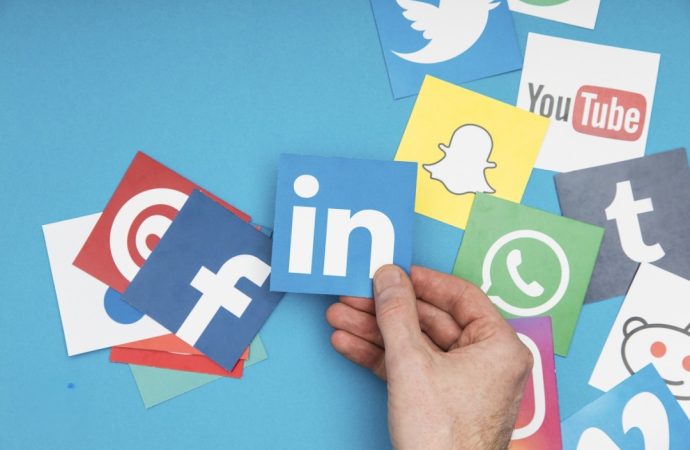Introduction In the past decade, social media has revolutionized the way we communicate, share information, and perceive the world around us. One of the most significant areas affected by this digital transformation is celebrity culture. Social media platforms such as Instagram, Twitter, Facebook, TikTok, and YouTube have not only given celebrities new tools to connect
Introduction
In the past decade, social media has revolutionized the way we communicate, share information, and perceive the world around us. One of the most significant areas affected by this digital transformation is celebrity culture. Social media platforms such as Instagram, Twitter, Facebook, TikTok, and YouTube have not only given celebrities new tools to connect with their fans but have also democratized fame, allowing ordinary individuals to achieve celebrity status. This article aims to explore the multifaceted impact of social media on celebrity culture, examining both the positive and negative aspects.
The Democratization of Fame
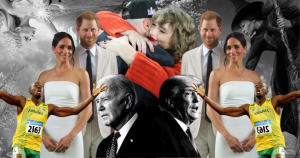
Image by: Google.com
- Traditional Celebrity vs. Social Media Celebrity
Traditionally, celebrities were individuals who gained fame through their work in film, television, music, sports, or other high-profile industries. They were often discovered and promoted by powerful gatekeepers such as talent agents, producers, and media executives. However, social media has disrupted this model by allowing anyone with an internet connection to share their talents, opinions, and lives with a global audience.
Social media celebrities, or “influencers,” can build substantial followings by creating content that resonates with people. These influencers often gain popularity through platforms like Instagram, YouTube, and TikTok, where they can showcase their skills, lifestyles, or personalities. Unlike traditional celebrities, social media celebrities often have more direct and personal interactions with their followers, making them more relatable and accessible.
- The Rise of Influencers
Influencers are a new breed of celebrities who have leveraged social media to build their brands. They come from various backgrounds and niches, including fashion, beauty, fitness, travel, and gaming. Influencers have become powerful marketing tools for brands, as they can reach highly engaged and targeted audiences.
One of the key factors contributing to the rise of influencers is their authenticity. Unlike traditional celebrities, who often appear distant and unapproachable, influencers are perceived as more genuine and relatable. They share their everyday lives, struggles, and successes with their followers, creating a sense of intimacy and trust.
The Power of Social Media Platforms
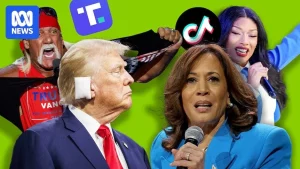
Image by: Google.com
- Instagram: The Visual Playground
Instagram has become one of the most influential social media platforms for celebrities. Its visual-centric nature allows celebrities to share photos and videos that showcase their lifestyles, fashion choices, and personal moments. Instagram Stories and IGTV have further expanded the ways in which celebrities can engage with their followers.
Celebrities use Instagram to promote their work, endorse products, and connect with fans through comments and direct messages. The platform’s algorithm also plays a significant role in determining which content gets the most visibility, making it essential for celebrities to understand and leverage these algorithms to maintain their online presence.
- Twitter: The Real-Time Newsroom
Twitter is another powerful platform for celebrities, offering a space for real-time communication and engagement. Celebrities use Twitter to share their thoughts, opinions, and updates with their followers. The platform’s fast-paced nature makes it ideal for breaking news, live-tweeting events, and engaging in public conversations.
However, Twitter’s open nature also makes it a double-edged sword. Celebrities are often subjected to scrutiny, criticism, and trolling. The platform’s character limit also challenges celebrities to be concise and impactful in their communication.
- YouTube: The Long-Form Content Hub
YouTube has given rise to a new generation of celebrities who create long-form video content. From beauty gurus and vloggers to gamers and educators, YouTube allows creators to build loyal fan bases by sharing in-depth and engaging content. The platform’s monetization options, such as ad revenue and sponsorships, have also made it a viable career option for many.
Celebrities use YouTube to share behind-the-scenes footage, music videos, interviews, and more. The platform’s comment section enables direct interaction with fans, fostering a sense of community and loyalty.
- TikTok: The Viral Sensation
TikTok has quickly become a cultural phenomenon, particularly among younger audiences. The platform’s short-form video format and algorithm-driven content discovery make it ideal for viral trends and challenges. TikTok has given rise to numerous social media celebrities who have gained millions of followers by creating entertaining and relatable content.
Celebrities use TikTok to participate in trends, promote their work, and connect with a younger demographic. The platform’s collaborative features, such as duets and stitches, also enable celebrities to engage with fans and other creators in unique ways.
The Positive Impact of Social Media on Celebrity Culture
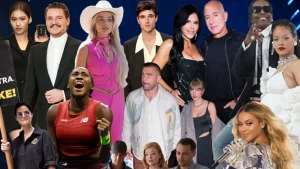
Image by: Google.com
- Enhanced Fan Engagement
One of the most significant positive impacts of social media on celebrity culture is the enhanced engagement between celebrities and their fans. Social media platforms provide celebrities with direct channels to communicate with their followers, share updates, and receive feedback. This direct interaction fosters a sense of community and loyalty among fans, who feel more connected to their favorite celebrities.
- Opportunities for Personal Branding
Social media has given celebrities unprecedented control over their personal brands. They can curate their online personas, share their values and beliefs, and align themselves with causes they care about. This level of control allows celebrities to build authentic and relatable brands that resonate with their audiences.
- Career Diversification
Social media has opened up new career opportunities for celebrities. Many have leveraged their online presence to launch businesses, such as fashion lines, beauty products, and lifestyle brands. Social media also provides a platform for celebrities to explore new creative ventures, such as podcasts, web series, and digital content.
- Increased Visibility and Reach
Social media has significantly increased the visibility and reach of celebrities. They can share their work and updates with a global audience, breaking down geographical barriers. This increased visibility has also led to more opportunities for collaboration and partnerships with brands and other creators.
The Negative Impact of Social Media on Celebrity Culture
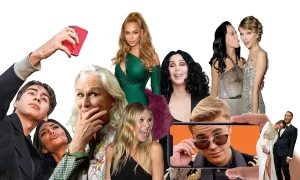
Image by: Google.com
- Invasion of Privacy
One of the most significant negative impacts of social media on celebrity culture is the invasion of privacy. Celebrities are often subjected to constant scrutiny and criticism, with their personal lives exposed to the public. This lack of privacy can lead to stress, anxiety, and mental health issues.
- Cancel Culture
Cancel culture is a phenomenon where individuals are publicly shamed and boycotted for their actions or statements. Social media has amplified this phenomenon, with celebrities often becoming targets of online backlash. While accountability is essential, cancel culture can sometimes lead to disproportionate consequences and hinder open dialogue.
- Pressure to Maintain an Online Presence
The pressure to maintain an active and engaging online presence can be overwhelming for celebrities. The constant need to create content, engage with followers, and stay relevant can lead to burnout and negatively impact mental health. The fear of losing followers and relevance can also drive celebrities to make impulsive decisions and share content that may not align with their values.
- Spread of Misinformation
Social media platforms are often breeding grounds for misinformation and rumors. Celebrities are not immune to this, with false information about their lives and careers spreading rapidly. This misinformation can damage their reputations and lead to unnecessary stress and public scrutiny.
Conclusion
Social media has undoubtedly transformed celebrity culture, offering both opportunities and challenges. While it has democratized fame and enhanced fan engagement, it has also brought about issues related to privacy, mental health, and misinformation. As social media continues to evolve, it is essential for celebrities to navigate this digital landscape mindfully and responsibly. By leveraging the positive aspects of social media and addressing its challenges, celebrities can build authentic and sustainable online presences that resonate with their audiences.

